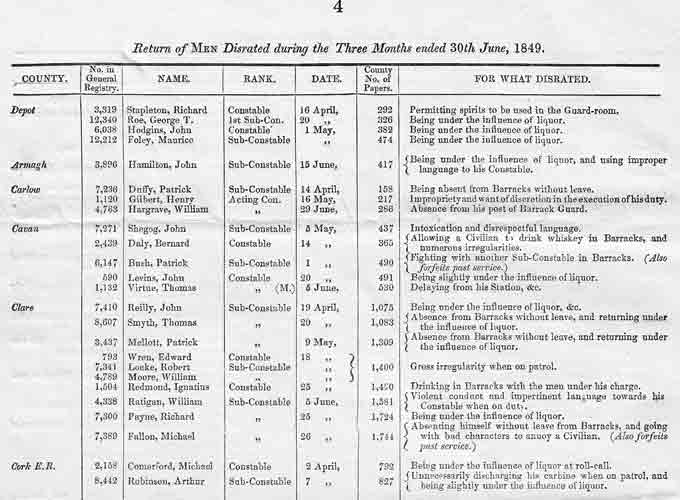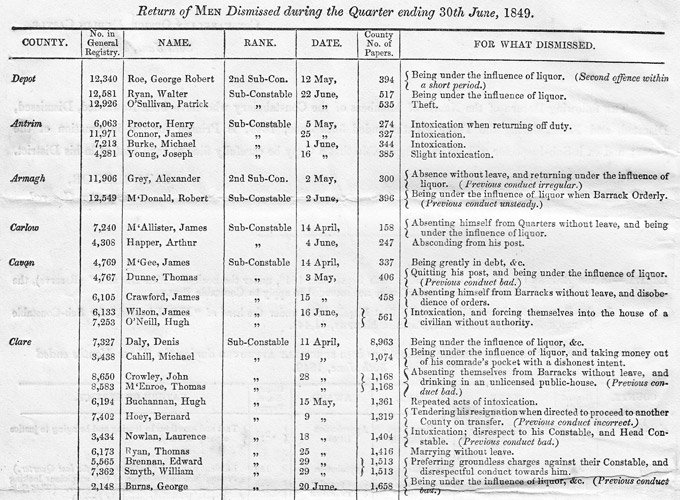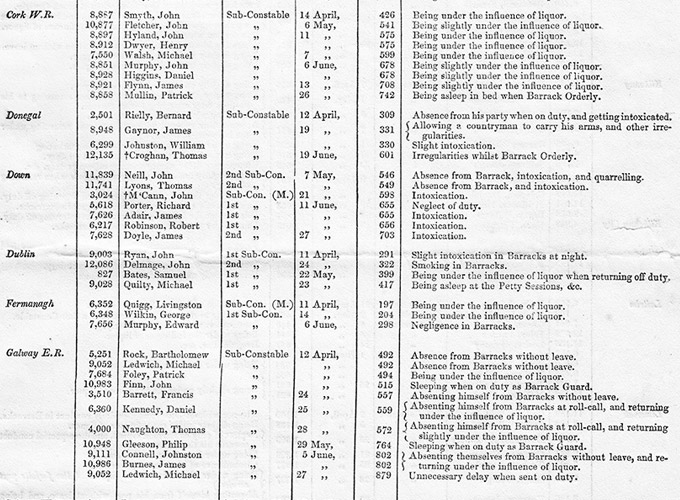Description
Two to four times a year, every Irish Constabulary barracks received a discipline list from the Constabulary Office in Dublin Castle. This list detailed the members of the force who had been rewarded, dismissed, disrated or fined during the previous months. As with this edition, the number of men punished greatly exceeded those commended. Most offences were alcohol-related, and varied from being caught drinking on duty to assaulting colleagues, superiors or civilians.
The government believed that the rigid enforcement of strict regulations was essential to mould, control and maintain the discipline of Irish Constabulary members in their widespread locations. The constabulary Code of Regulations was compiled in 1820, by 1837 it had 730 sections, in 1872 1,387 regulations and by 1911 it had grown to almost 2,000 sections.
Members of the Irish Constabulary were never considered off duty. The single men, and sometimes married men, had to live in barracks where their lives were minutely controlled by the Code of Regulations. Their freedom to mix with the public was curtailed, and before the 1880s they were forbidden to enter public houses. The first recruits, ex-soldiers from the Napoleonic wars, coped with the strict discipline. Later recruits, with no military background, found the regime harsh and those who did not conform were punished or dismissed. The majority of breaches were dealt with directly by the county inspector who imposed a fine or penalty. Men accused of more serious offences faced a disciplinary inquiry which was similar to the British army's court martial but conducted by inspectors of a superior rank.




